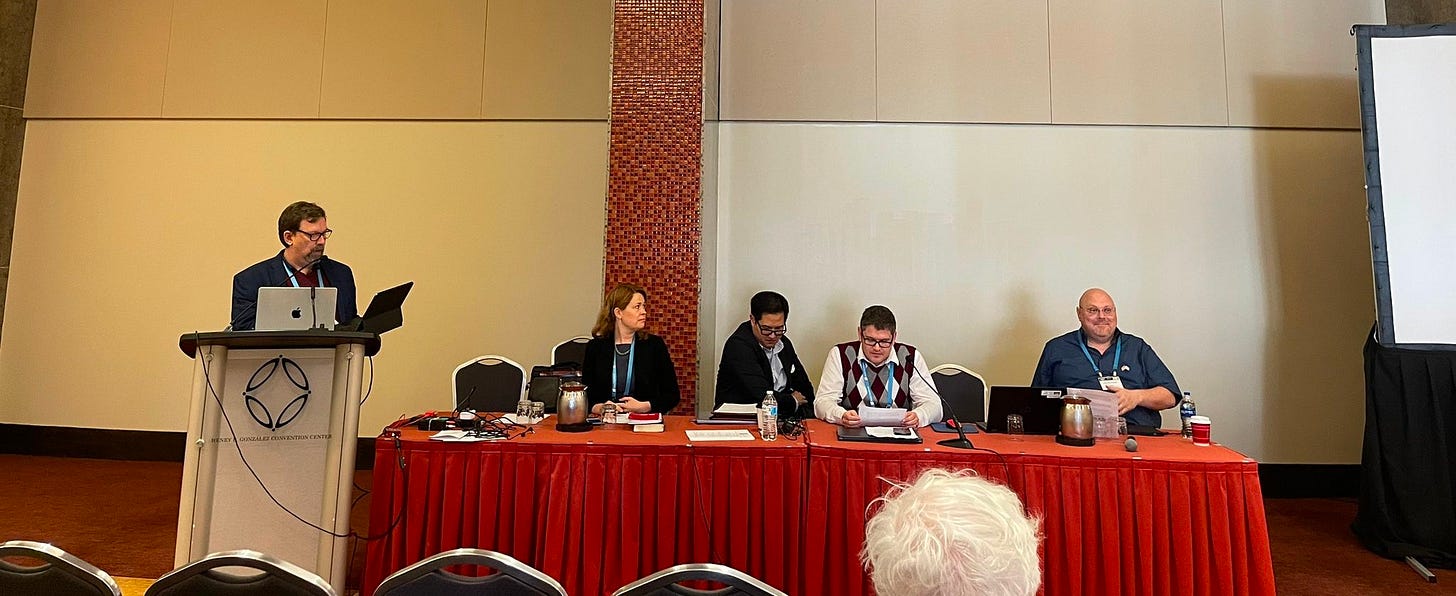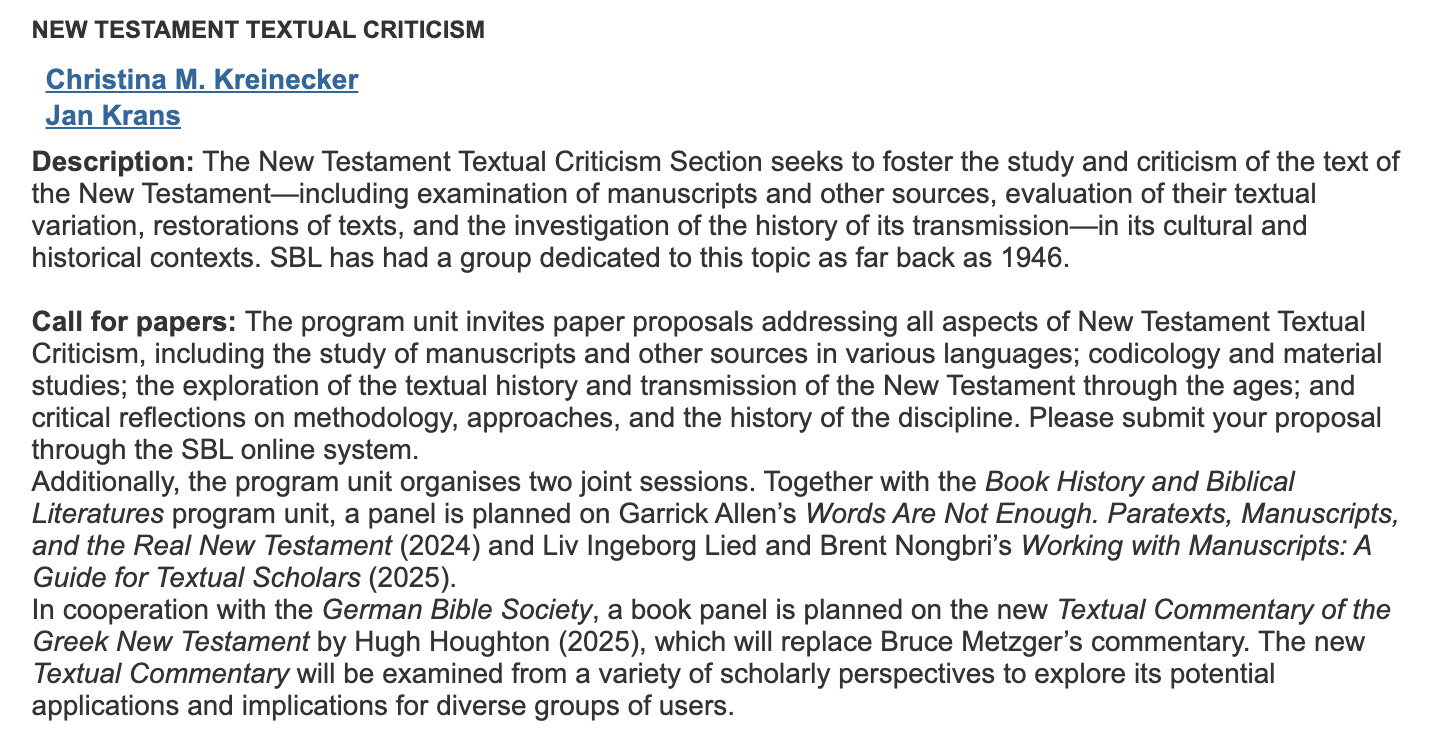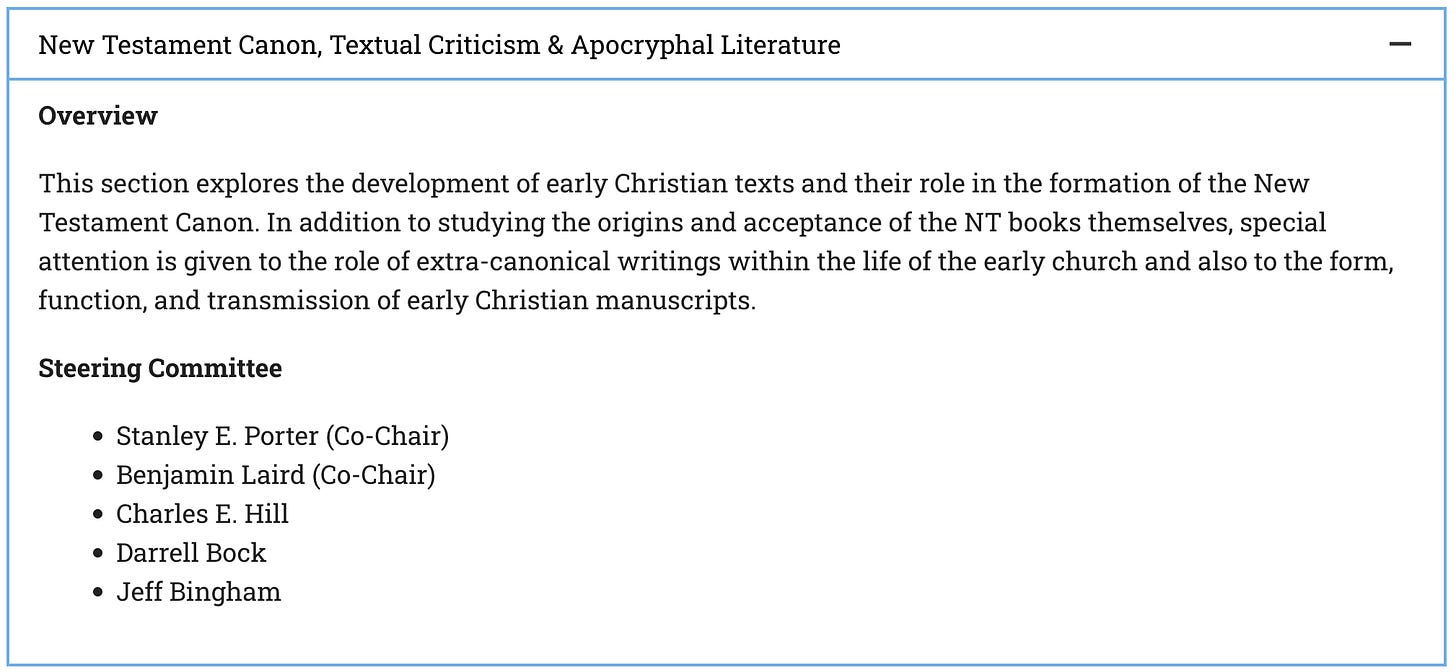How to write good paper proposals for ETS/SBL
What makes for a good academic paper proposal?
I recently gave feedback to two graduate students submitting paper proposals to the SBL annual meeting and this led me to think about what makes for a good paper proposal.
We all know that publishing is important for academia, but conference presentations are also important, especially for beginning graduate students, so it’s important to get paper proposals accepted.
Generally, regional ETS/SBL conferences are fairly easy to get accepted, even if you write a bad proposal. But it’s the national conferences in November that are more competitive and difficult, especially SBL because there is more international participation at SBL, so you’re competing against those from Europe and elsewhere.
I had my first several ETS/SBL national paper proposals all rejected 🥲, before finally getting accepted in 2018 at ETS National and in 2023 for SBL national.
Here’s a few thoughts on writing a good proposal:
1. Know your audience.
The ETS/SBL section chairs will read your proposals and you can find out exactly who these are under the SBL Program Unit Call for Papers:
For the SBL program units, you will need to search for the specific program unit that you want to submit a paper for. Then under “Details” you will be able to see who the section chairs are.
For ETS, see the Program Units Overview and look for the section you want to participate in. There you will find the members of the Steering Committee.
You should probably already know the section chairs / steering committee from your own research, but they are experts in the field, well-published, and well-connected. These people run major research projects, have written massive exegetical commentaries, and are well-read in the field. So if you argue for something obvious, hard to disagree with, or already dealt with — they will know!
A good paper proposal usually requires a bit of research already finished, in order to get a sense of what you can argue. And as you write, imagine these people sitting in front of you and anticipate their objections.
2. Know the “fads” — what has your field been talking about recently?
Your proposal needs to appeal to the section chairs and be interesting to them, which means proposing a topic that fits with what your field has been talking about.
SBL is more “faddish” than ETS in the sense that SBL is more interested in new methodologies (e.g., AI, digital humanities), new perspectives (feminist, postcolonial, LGBTQ, etc.), and inter-disciplinary dialogue. You can sometimes get away with a fairly traditional exegesis of a passage at ETS, but probably not at SBL.
In my field of textual criticism, scribal habits has been an area of increased interest in the past 20 years. I told the grad student who asked for my advice to adjust his paper so that he discussed scribal habits in each manuscript he will use by looking at how the scribe functioned across the whole New Testament. Then he could apply what he learned to the one specific passage he wanted to focus on from Hebrews.
This adjustment would be a lot more work and more data heavy, but far more interesting and useful. Dirk Jongkind has told me several times that good and accurate data gathering will always be useful. Someone else can disagree with how you interpret the data or how you use the data — but the data itself will remain useful. And others may take your data and take it in directions you never imagined.
3. Have an argument, methodology, contribution, and road map.
These things can be hard to articulate if you haven’t written the full paper yet, but these are the elements of a good proposal. Without these elements, your proposal will be weak and easy to reject.
ARGUMENT
The best test that you have an actual argument is: Do and can people disagree with you? Or is you argument not really even disprovable because it is obvious?
This is harder than it sounds, which is why getting a second opinion can be helpful.
Often reading more secondary literature will give you a good sense of different arguments on an issue, and you can decide which side you want to defend or argue against. Early PhD students often haven’t read enough of the secondary literature to know what has and has not already been argued.
Also — going back to “old” sources (early 20th or 19th century) can be fruitful. I was recently studying the Long Ending of Mark and didn’t realize that Samuel Tregelles from the 19th century had made an argument that I’d not really seen in 20th/21st century textual scholarship. Namely, that the Long Ending of Mark is not original to Mark’s Gospel, but it should still be considered canonical.
METHODOLOGY
When people first get into academia, it is hard to grasp that methodology is very important. How you argue for something is just as important as what you argue for.
But honestly — you don’t always have to come up with a brand new methodology; you can take a good methodology developed by others and apply it to something new.
For example, the grad student I was helping wanted to talk about scribal harmonization towards the Septuagint in Hebrews. A lot of good work on scribal harmonization has already been done — but mainly in the Gospels. So I recommended that he follow the methodology laid out by others, but say that he would apply it to the epistles.
CONTRIBUTION
Everyone knows that good scholarship makes a “contribution” to existing scholarship. But the idea of “contribution” is often misunderstood to be something brand new and never before seen (which is really, really hard to do!)
However, there are easier ways to make small, incremental contributions:
Apply an old methodology to a new problem.
Apply a new methodology to an old problem.
Add new data/evidence to an old problem.
Such contributions are not completely new, but take what is already available and move your discipline forward.
ROAD MAP
The road map should be your main points, so that people get a sense of how your argument will progress and move towards a satisfying conclusion. This is easier if you’ve already done a lot of the work. But even if not, you should still be able to articulate the logical progression of the paper.
Any other advice you’d give?
EDIT: April 26, 2025
Both of my SBL paper proposals were accepted for the 2025 conference.
Here are links to my proposals for your reference and as an example of accepted proposals:
Nelson’s SBL Paper Proposal: 1 Peter According to the Paratext of Greek and Latin Manuscripts
Nelson’s SBL Paper Proposal: An Evaluation of ECM Revelation’s vol. 3.2 and Segmentation Apparatus
I hope this helps!






